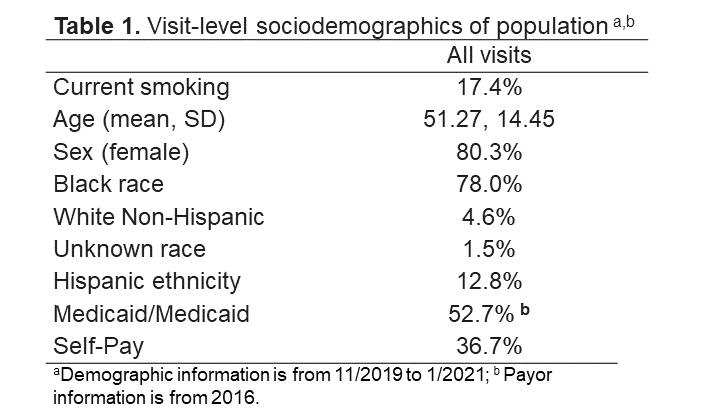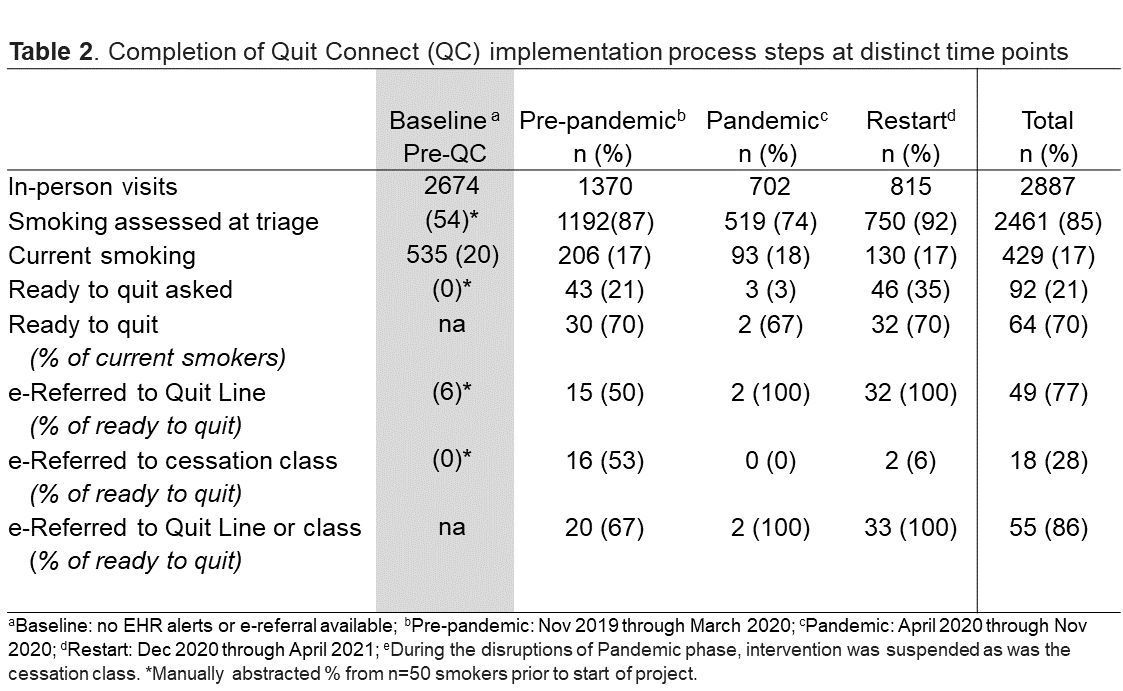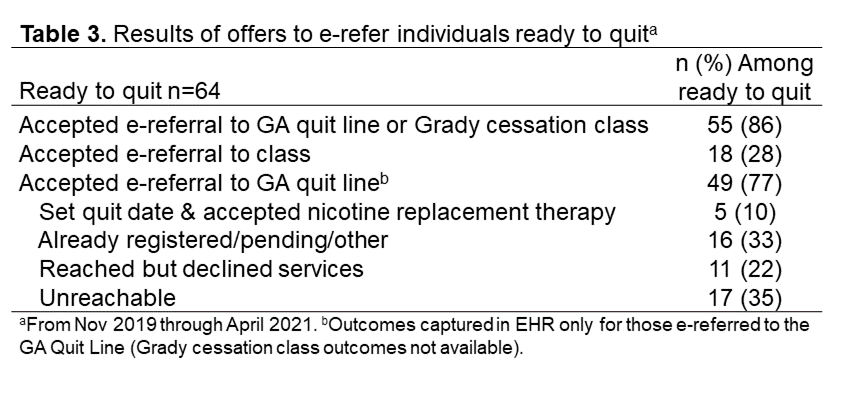Session Information
Date: Sunday, November 7, 2021
Title: Measures & Measurement of Healthcare Quality Poster (0623–0659)
Session Type: Poster Session B
Session Time: 8:30AM-10:30AM
Background/Purpose: Smoking is a risk factor for rheumatologic conditions like lupus and rheumatoid arthritis and predicts worse outcomes. Smoking and rheumatic disease increase risk for cardiovascular disease, yet rheumatology clinics address smoking cessation in ≤10% of visits. An ACR quality measure reports cessation intervention rates. Tobacco Quit Lines (TQL) can increase cessation 4-fold via free coaching and nicotine replacement. Amid COVID, cigarette sales increased for the first time in years, yet 27% fewer sought TQL help.
Methods: Quit Connect (QC) supports rheumatology staff medical assistants or nurses via electronic health record (EHR) tools to Ask smokers about 30-day readiness to quit/cut back, Advise cessation support, and Connect ready patients via EHR orders to receive cessation support via a TQL call or a cessation class. QC increased TQL referrals 26-fold in our prior study, and takes < 90 seconds. We implemented QC at a large public hospital rheumatology clinic in Atlanta, GA to test generalizability and increase TQL referrals.
Adults in the rheumatology clinic with current tobacco use were eligible. EHR tags captured process steps when a patient was Asked about smoking/quit readiness, Advised regarding cessation, and Connected via referral to TQL or cessation class. We compared performance pre-pandemic, during the COVID peak, and upon restart of the project. We assessed QC cost-effectiveness for clinics based on staff time and wages per our previous study.
Results: Across clinic visits, 80% were female, 78% Black race, 53% had public insurance, and 37% were uninsured. In 7 of 50 (14%) baseline audited visits, providers acknowledged current smoking, and only 3 visits (6%) included a quit line discussion. During QC implementation, across 2887 visits, 85% assessed tobacco use, and 17% identified current smoking (Table 1).
Compared to pre-intervention rates of 0%, after QC implementation, 21% of smokers were asked readiness to quit (Table 2). Questioning increased from 21% pre-pandemic to 35% during the restart phase. Of those asked, 70% were ready to quit. Among those ready to quit, 77% accepted referral to TQL and 86% accepted referral to TQL or class. Of those referred to TQL, 10% (n = 5) accepted nicotine replacement and set a quit date; 22% declined services, 35% were unreachable (Table 3).
Staff spent 920 seconds (15.3 minutes) to ask 92 patients readiness to quit and 4400 s (73.3 min) to offer referrals to 55 ready patients. With a total 88.6 min (1.47 hrs) multiplied by a staff rate of $15/hour, it cost $22.15 to refer 55 patients to tobacco cessation support ($0.40 each; $4.43 per quit attempt).
Conclusion: In a low resource rheumatology clinic serving predominantly Black patients with public insurance or uninsured, 70% of smokers were ready to cut back/quit when asked, and 86% of those individuals accepted referral to cessation support. Despite pandemic barriers, patients were connected directly to TQL and set a quit date and accepted nicotine replacement. Increasing the number of patients asked about readiness to quit may increase referrals. QC was feasible, cost-effective, and sustainable even during the COVID pandemic and could be considered for future dissemination to help rheumatology patients stop smoking.
To cite this abstract in AMA style:
Brandt J, Ramly E, Messina M, Lim S, Bartels C. Title: EHR-Supported Staff Protocol Improves Smoking Cessation in a Diverse Rheumatology Clinic: Updated Results of Quit Connect Dissemination [abstract]. Arthritis Rheumatol. 2021; 73 (suppl 9). https://acrabstracts.org/abstract/title-ehr-supported-staff-protocol-improves-smoking-cessation-in-a-diverse-rheumatology-clinic-updated-results-of-quit-connect-dissemination/. Accessed .« Back to ACR Convergence 2021
ACR Meeting Abstracts - https://acrabstracts.org/abstract/title-ehr-supported-staff-protocol-improves-smoking-cessation-in-a-diverse-rheumatology-clinic-updated-results-of-quit-connect-dissemination/



